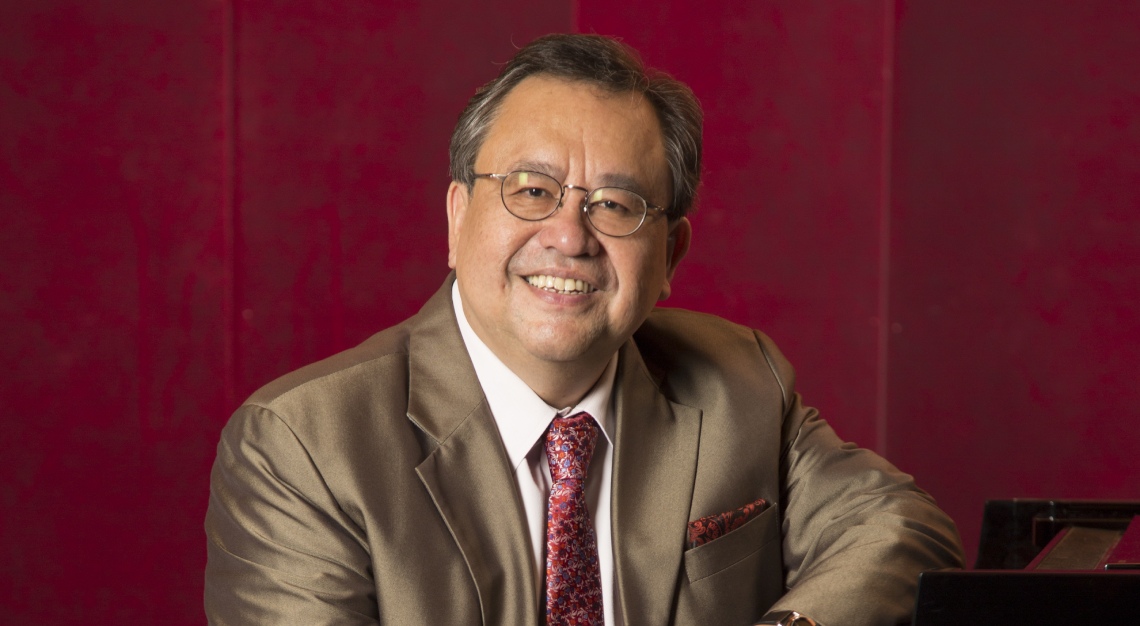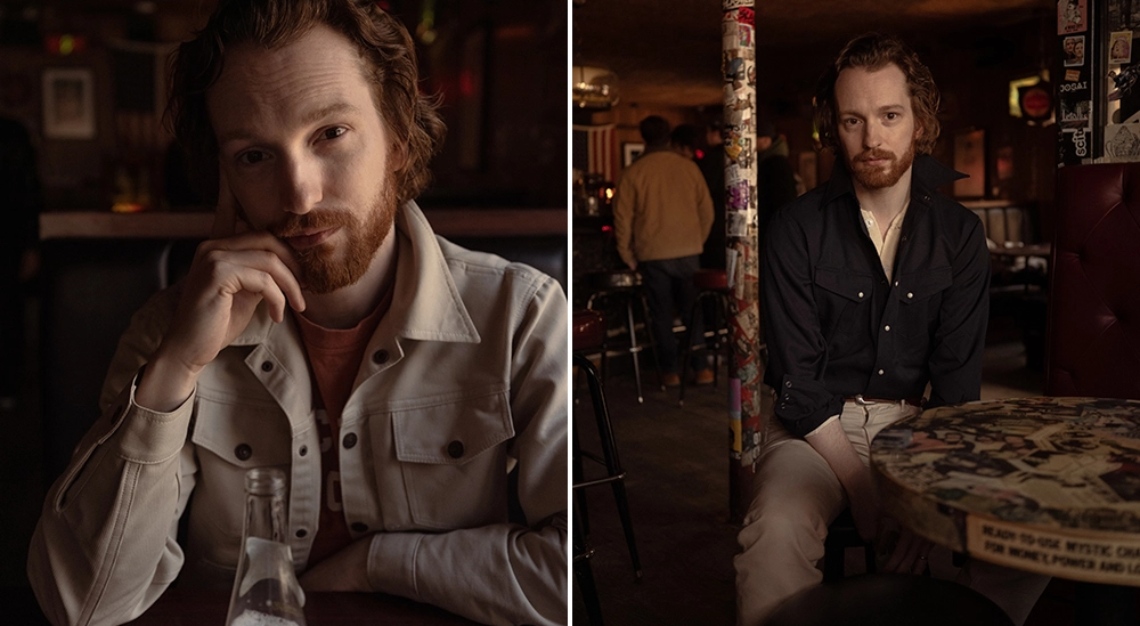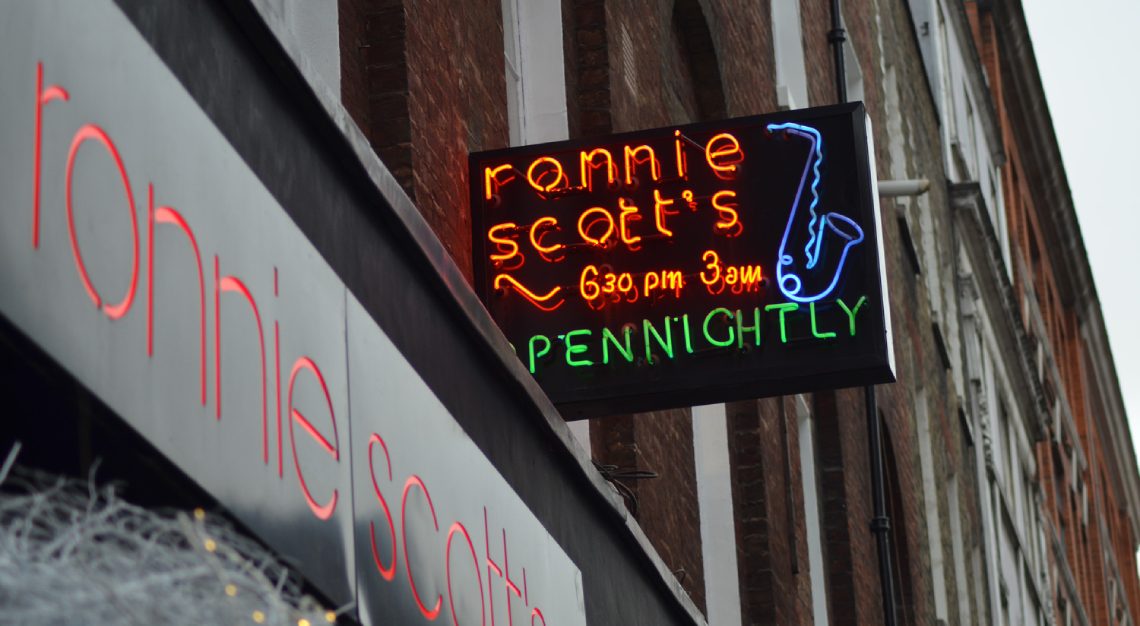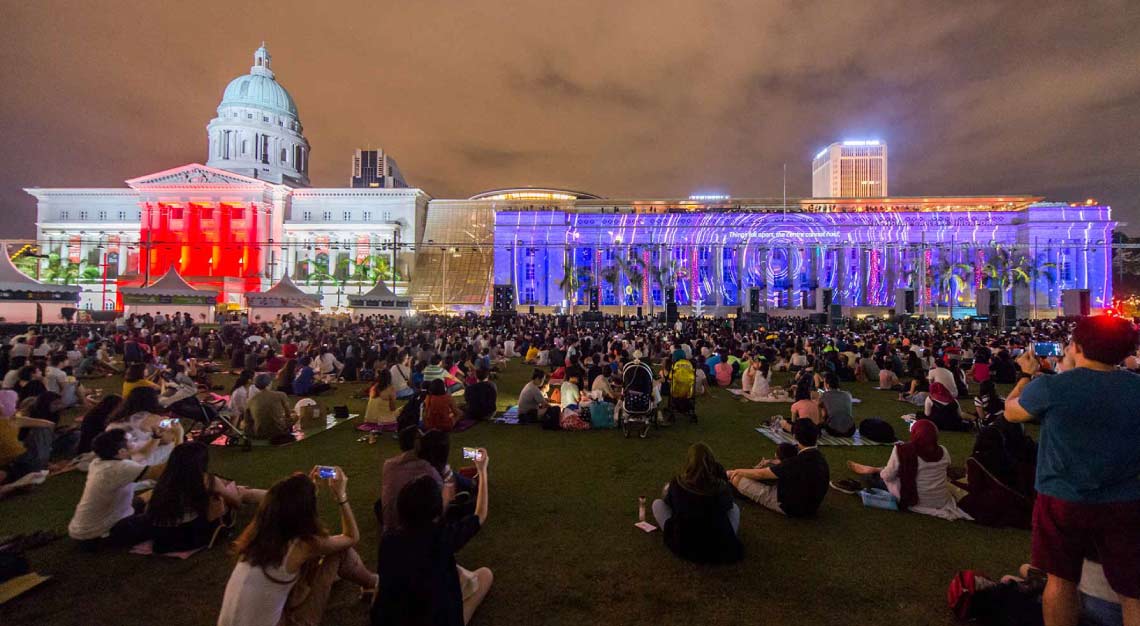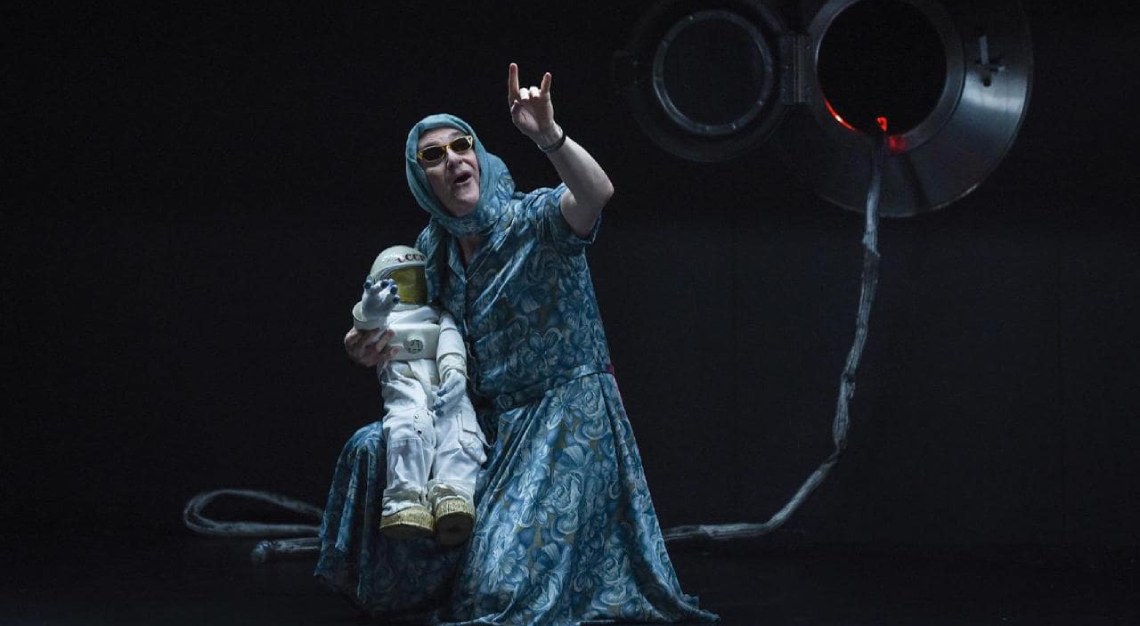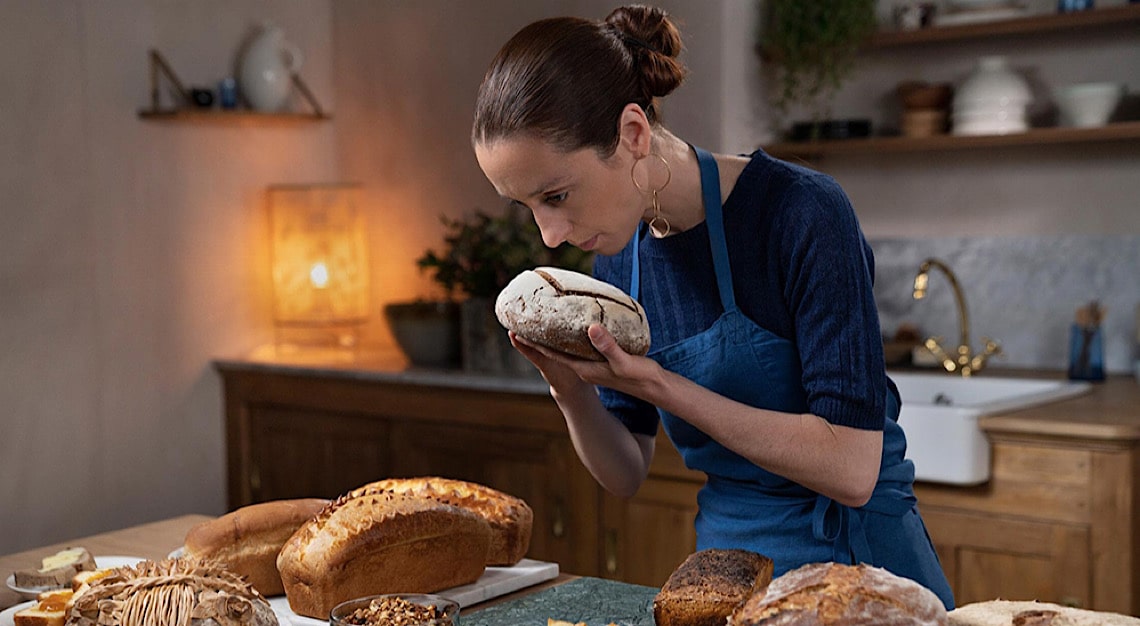Andrew Leci gets a taste of live music for the first time in a year, and is licking his lips
Barely a week after ‘attending’ the Jazz Association of Singapore’s (JASS) ‘Virtual Gala’ event via Zoom – having tucked into my snapper; partaken of my glass of wine; sucked down my petit four chocolates (all supplied to homes for the event) – I was at the Esplanade Concert Hall. I was about to experience live music for the first time in many months, and I was excited. I had missed it. Like the desert misses rain.
The lockdowns around the world have, in many ways, separated the wheat from the chaff. There are those among us who have thrown up our arms, given up the ghost and trodden down the ‘woe is me’ path, while others have embraced the difficulties, thought about what they might do in the circumstances, and made a fist of it.
Jeremy Monteiro is one such individual. Inarguably one of the best jazz pianists on the planet – he has played with the greats, and I have met some of them who assert that Monteiro is right up there in the pantheon – he was never one to let a crisis get in the way of doing what he loves: playing music, delighting audiences, and spreading the word of jazz.
If anyone thinks that there may be a religious reference in that last sentence, there is, and it’s deliberate. Jazz is a movement, and it’s also a belief, and while the world could probably be divided between those who love jazz and those who hate it (that is; those who don’t understand it and are too stupid to appreciate it) musicians have been among the worst hit since the global pandemic curled its arms around our collective throats. Imagine not being able to do what you love most; playing to appreciative audiences who enjoy your music and earning some money while you’re going about it. Local musicians have been deprived of this possibility for longer than is either healthy or sustainable.
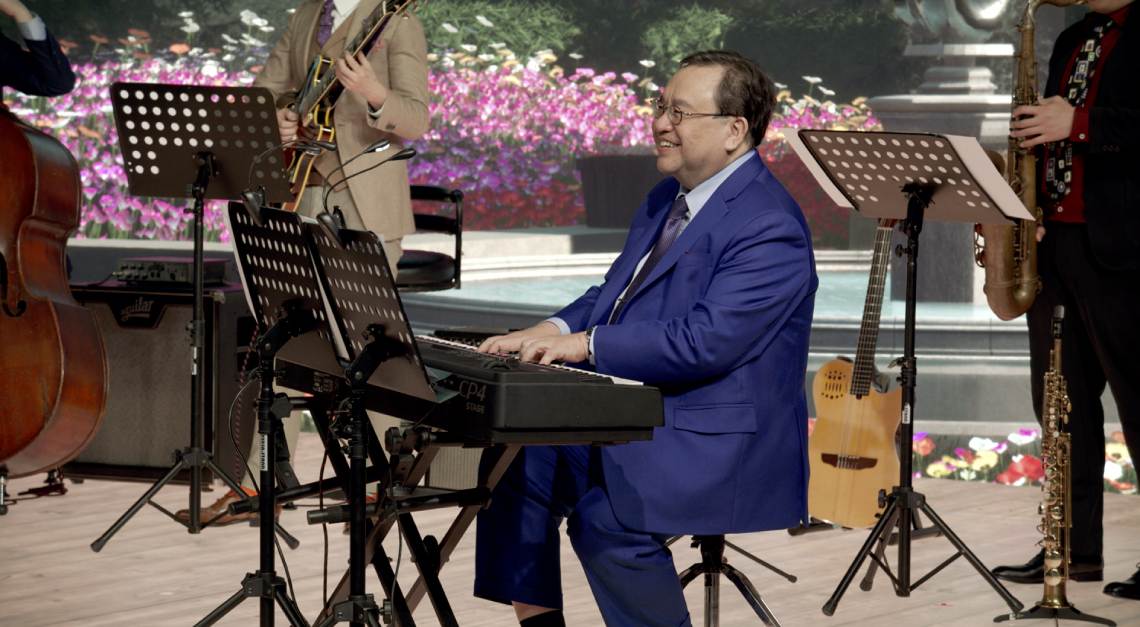
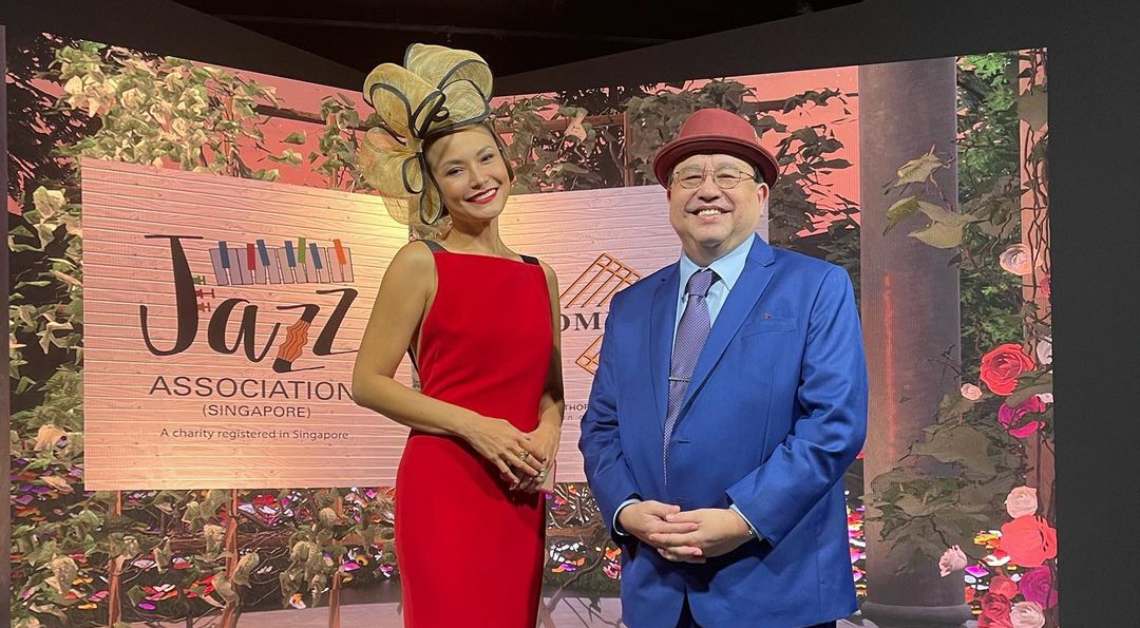
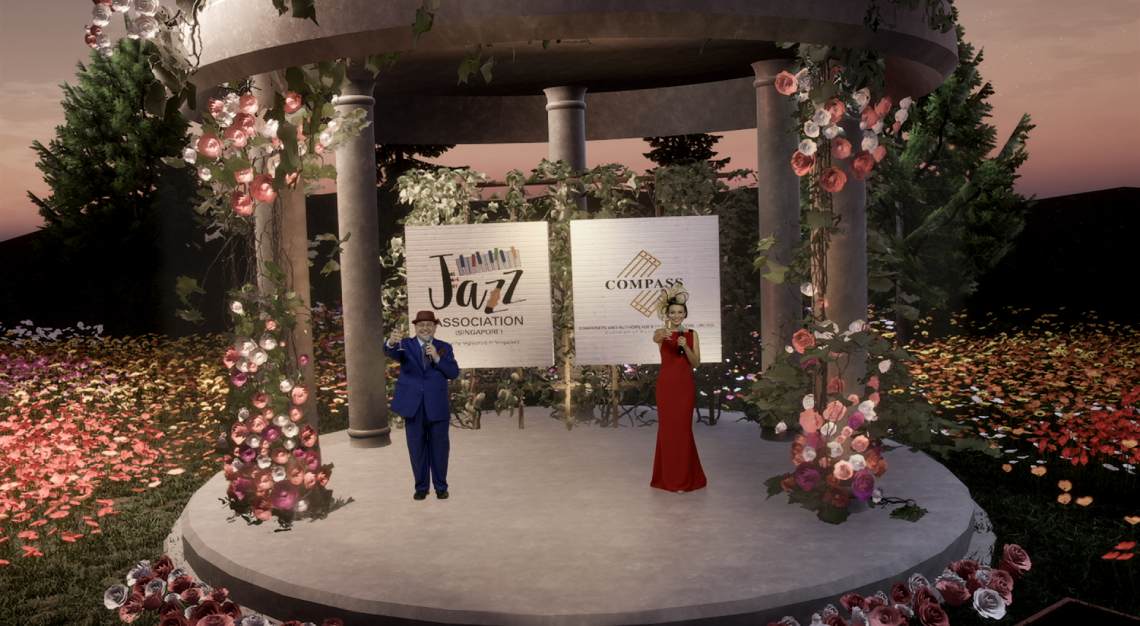
Jazz, however, is all about improvisation. The musician makes stuff up, on the spot, building on what came before, creating tributaries in the river of a tune that is taken from start to finish, and always negotiating the way back. It’s an extraordinary skill, limited only by the imaginations of the musicians and their control of their instruments. But when it is done well, it is fine art, and very few people do it better than Monteiro.
His flights of fancy when ‘bridging’ to another instrument solo in a piece are aurally orgasmic, and yet he never, ever attempts to steal the show. This is because promoting his milieu in Singapore is more important to him than recognition and kudos. Monteiro believes in jazz, and wants to make it as accessible as possible to everyone. While the Virtual Gala featured renditions of Moon River, and Over the Rainbow – please, give us all a break (they’re both beautiful tunes, but does any of us ever need to hear them again in our lifetimes? Like, ever?) – Monteiro knows from experience that non-jazz aficionados need to be softened up. And what better way to do that than by playing tunes that everyone recognises.
It’s a sad state of affairs, perhaps, because many people find jazz challenging. You can’t always hum along, and musicians often go off on tangents that sound self-indulgent and are occasionally discordant and rarely mellifluous. Sorry peeps; this is art. It’s not always done well, but when it is, it’s magical.
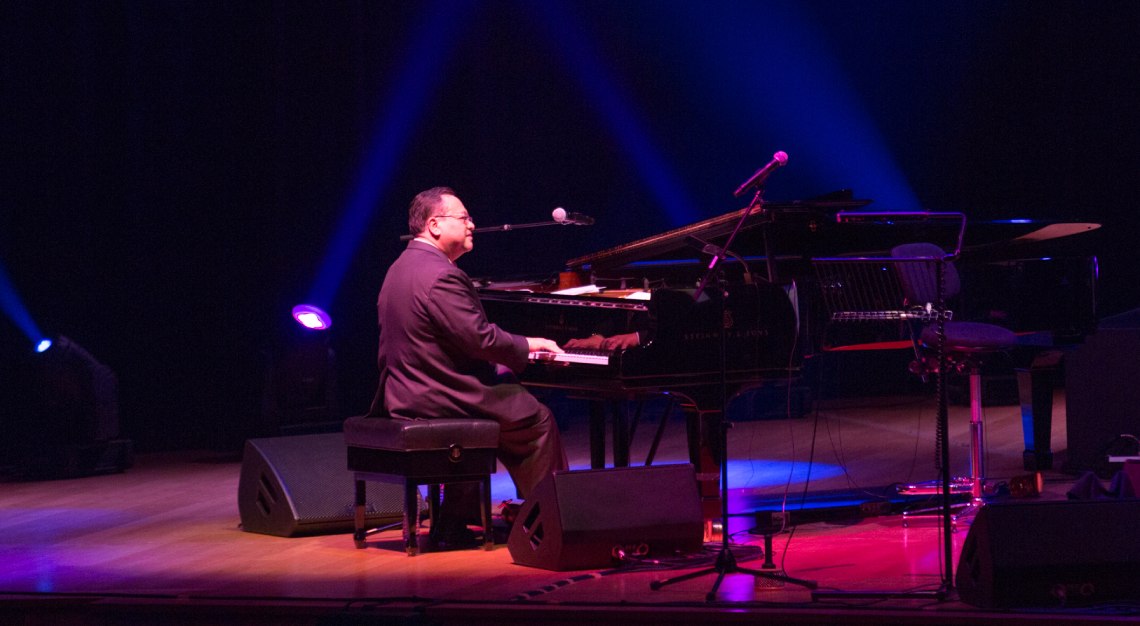
Monteiro wouldn’t even have broken sweat during both the Virtual Gala and the live concert at the Esplanade that followed. It’s not as though he was ‘dialling it in’ – he wasn’t. He was as engaged as every other performer on stage, all of whom looked fresh, free, and excited to be strutting their stuff in front of a live (albeit limited in number) audience. It was such a joy to watch and hear.
I sat down to talk to Monteiro and thought I might ask him some impertinent questions.
What were the biggest challenges in putting the virtual gala together?
It was uncharted territory for us, but the team and I learned quickly. We had the dream about doing this before we knew whether or not the technology was available in Singapore. Nothing beats being there in person, of course, but from feedback so far, most who attended enjoyed the show and were happy.
What is the connection between jazz and getting through the ravages of the pandemic?
Jazz is about resilience and improvisation. Musically, it’s about finding solutions, extrapolations and best outcomes, often in the moment, so it’s a good metaphor for being adaptable during challenging times and situations. A global pandemic definitely fits into that category.
To what extent did you have to rely on the kindness of strangers?
Most of the donors are known personally either to me, the Board, or the gala committee members, so, in essence, we relied on the kindness of friends. But more and more people who are not personally connected to individuals within JASS – actual jazz lovers and aficionados – are now more forthcoming with their support. This has been very gratifying for all of us at JASS.
How much have you missed playing live over the last year or so?
Very much. I played my live show in front of an audience at The Esplanade on 20 March, and it was only my second since COVID-19 hit our shores. It was wonderful to be able to see the faces in the audience once again, despite the fact that the crowd was sparse due to safe social distancing. It was still good to know that there were fans out there, watching and listening. As a live performer, this is what I live for, and the hiatus of the last year has proved challenging. I’m sure we’ll be over it soon though, and I can get back to doing what I love.
Could virtual concerts be part of the future of music?
I think they will supplement and complement live shows, and in some cases, if the technology and presentation is unique and interesting enough, some people may actually adopt virtual concerts as much as they go for live concerts. Only time will tell.
Why does jazz have a reputation for being esoteric?
I sometimes liken jazz to cheese. Not that it’s cheesy. So, let’s say we have cheddar at one end of the spectrum and perhaps casu marzu at the other. Someone will find a cheese that they like somewhere in between, and I believe that there is a segment of jazz that will appeal to everyone if they look for it, find it, and give it a listen. Besides the various specialised segments, there is a nice general spectrum that I think would appeal to almost everyone who gives it a try.
What would you say to people who ‘don’t like jazz’?
Often, people say that they don’t like something because they haven’t yet tried it. Also, with my cheese analogy, if your first taste is a ripe camembert, you might say you don’t like it, and then you try a mild cheddar or a delicate brie and you just might enjoy it. It depends, therefore, on which particular style of jazz one is first exposed to. If one goes on a journey of discovery about jazz, it’s not difficult to find something that suits.
What does the future look like for JASS?
Charities, in particular arts charities, are not having the best time. We are grateful for the great support that JASS gets from generous donors and also from the government for the grants we receive. We don’t take this for granted, excuse the pun, and we know that it won’t be easy sustaining our mission and our programmes in these difficult times, but we sure are going to try.
Getting back to you as a performer; who in the world would you like to play with who you haven’t already?
It’s going to be a strange answer. The person I most want to collaborate with is not a jazz artist but the American pop-folk hero, James Taylor. His collaboration with the late great jazz saxophonist/composer Michael Brecker is amazing. I hope to be given an opportunity or be able to create an opportunity to collaborate with him. He is the last one in my long bucket list, but I always look forward to collaborating with others who approach me.
What are your plans for the rest of 2021?
With JASS, we have the upcoming marquee annual project, the Lion City Youth Jazz Festival (24 April), which is a wonderful mentorship festival where our young musicians work with jazz legends and giants, and our concert of Chinese songs called ‘Jazz It Up!’, in June, where we connect with the Chinese speaking audience with jazzy snazzy arrangements of well-loved Chinese songs.
For my own personal projects, after the Chamber Jazz Concert at The Esplanade, I have another symphonic jazz concert with re:Sound Collective – one of Singapore’s best Chamber Orchestras on 19 June – my last day of being 60 years old.
With these two projects, I hope to signal a movement I want to galvanise, and that’s to bring Symphonic Jazz to the fore in the next five years with the various stakeholders in the scene; that is, composers, arrangers, and musicians. It is part of one of my ambitions to bring Classical and Jazz lovers together to play and to enjoy.
